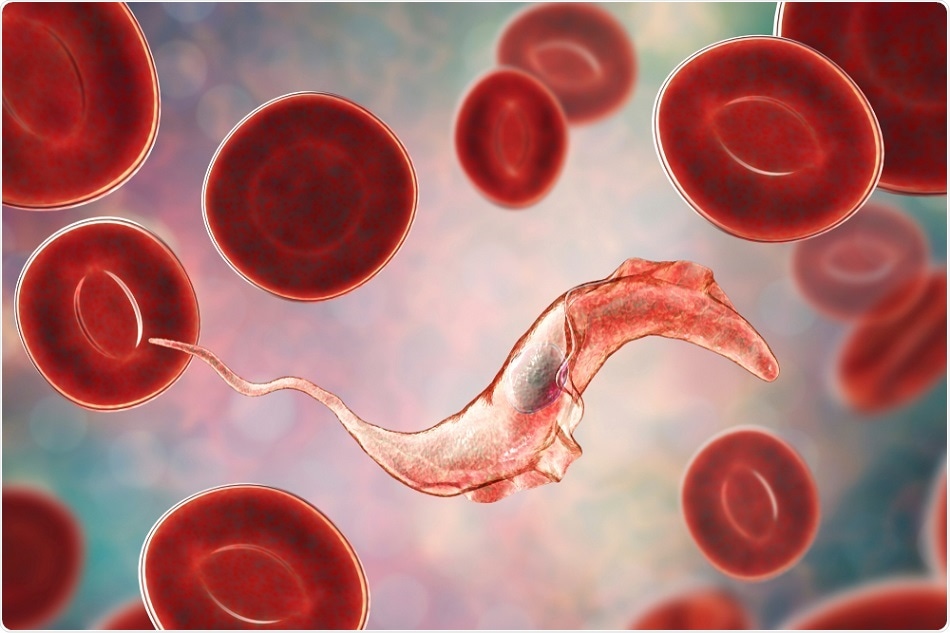
In a mouse model of the parasitic disease, the team found that the Alzheimer’s drug memantine diminished the number of parasites and increased the animals’ survival rate.
About Chagas disease
Chagas disease, which is caused by the protozoan parasite Trypanosoma cruzi, affects 5 to 6 million people in endemic areas of the Americas. It is a neglected tropical disease, with current treatment approaches remaining largely unsatisfactory.T. cruzi is transmitted to mammals (including humans) when an infected triatomine insect defecates on the skin and releases trypomastigotes parasites along with the feces. These protozoa gain entry to the body through mucosa and small wounds and then invade host cells where they reside in the cytoplasm and initiate proliferation as amastigotes.
After several cellular divisions, amastigotes undergo a complex differentiation process that yields a new generation of infective, non-proliferative forms of the parasite called trypomastigotes. These trypomastigotes burst the host cells, which releases them into the extracellular environment. The parasites can then infect surrounding cells or get into the bloodstream and extend infection to other tissues.
Acute and chronic phases of disease
The disease can be divided into acute and chronic phases. The acute phase is mainly asymptomatic, and most people (60 to 70%) with chronic disease also do not develop symptoms. However, the remaining 30 to 40% of patients with chronic illness develop recognizable clinical symptoms. In these individuals, the chronic phase, which persists for the host’s lifespan, is characterized by heart, esophagus and intestinal symptoms. The most common symptoms are heart hypertrophy and dilatation, esophagus and large intestine dilatations or a combination of the two.Current treatments unsatisfactory
Memantine as a trypanocidal drug
Now, Areil Silber and colleagues have conducted a new study of memantine, a glutamate receptor antagonist in the mammalian central nervous system that is used as a treatment for Alzheimer’s disease, but has also been shown to kill protozoa.The researchers had previously conducted research showing that memantine is a trypanocidal drug that can induce apoptosis-like death in T. cruzi.
In the present work, the team further investigated the effects of memantine in experimental models of T. cruzi infection. First, they studied the effect of different drug concentrations in T. cruzi-infected macrophages. They then tested the effects in infected mice that had Chagas disease.
As reported in the journal PLOS Neglected Tropical Diseases, the researchers found that memantine decreased the number of T. cruzi-infected macrophages in a dose-dependent way – the greater the dose administered, the greater the reduction.
In the mice with Chagas disease, treatment with memantine reduced levels of the parasite by 40% and increased the animals’ survival rate from 7.5% to 12.5%. The treated mice also had a 35.3% lower level of the parasite in their hearts, compared with control mice.
“Infected mice that were treated with memantine had diminished parasitemia, cardiac parasitic load, and inflammatory infiltrates. In addition, the treated mice had an increased survival rate,” writes the team.
The researchers say that taken together, these results suggest that memantine should be further investigated: "All these findings point memantine as an interesting starting point for the development of an optimized alternative therapy for Chagas disease," the team concludes.
Journal reference:
https://journals.plos.org/plosntds/article?id=10.1371/journal.pntd.0007226






No comments
Post a Comment